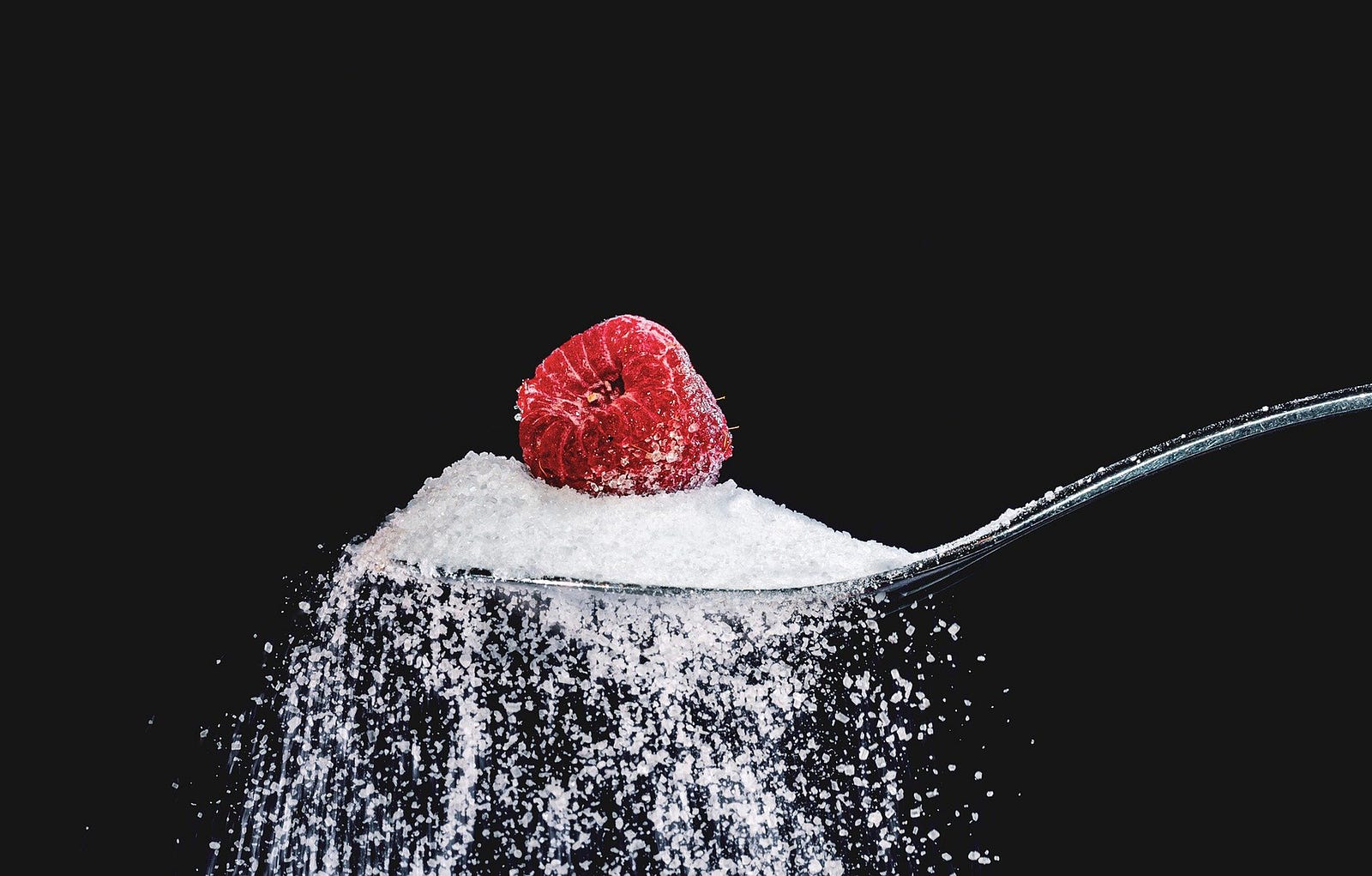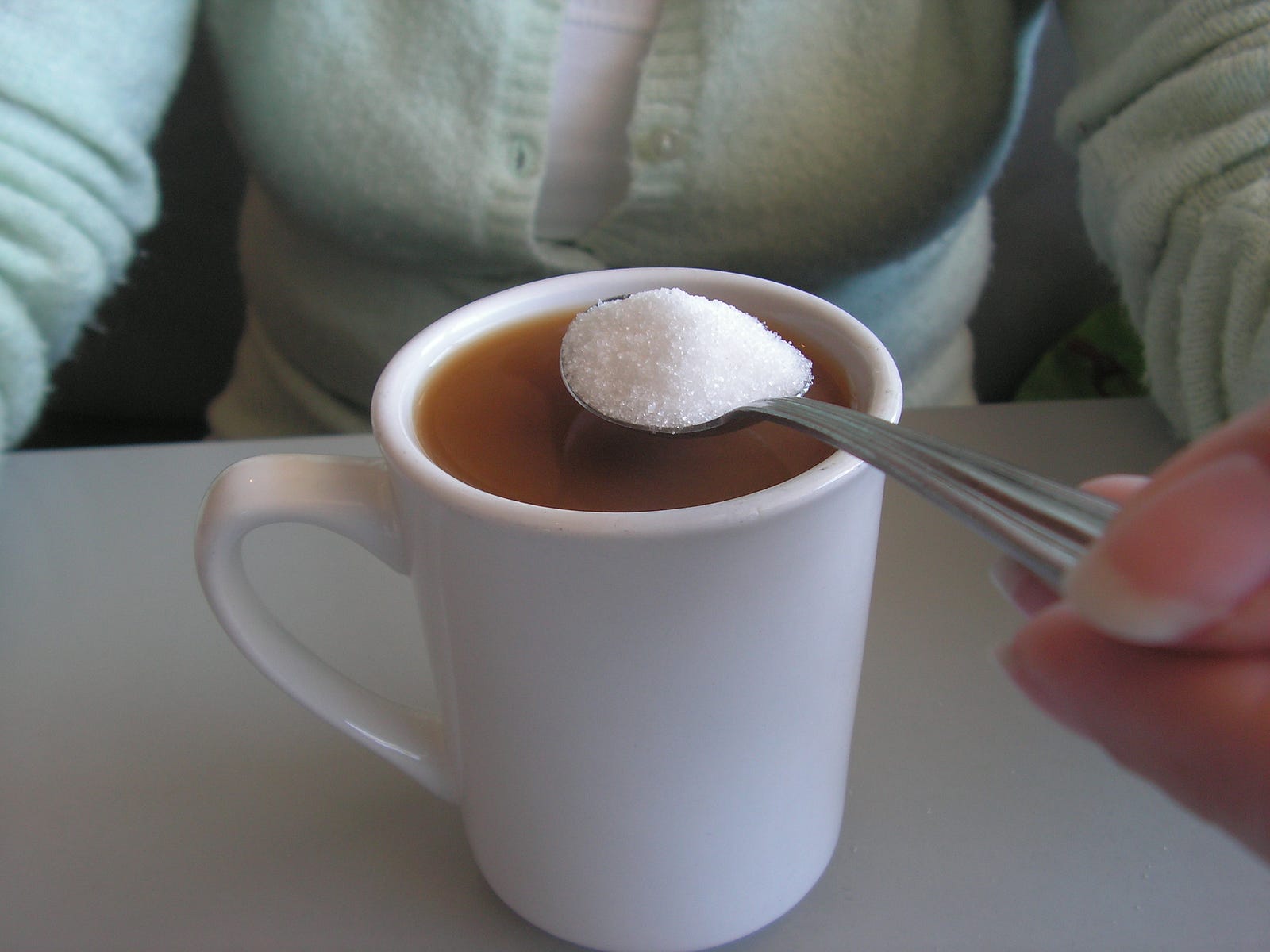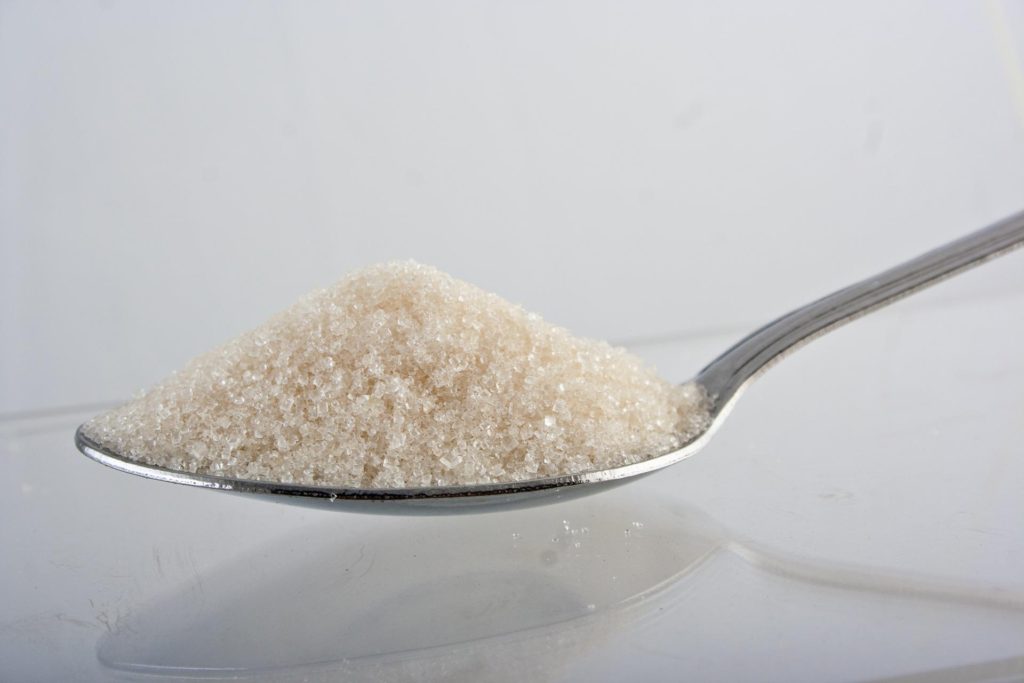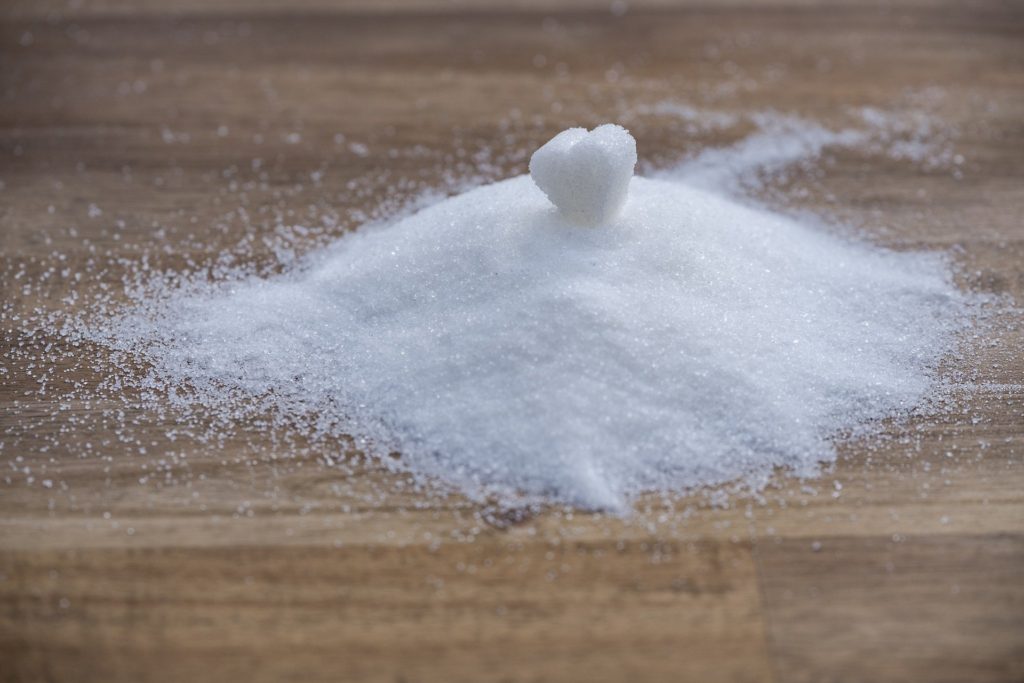Artificial sweeteners aren’t monosaccharides because they aren’t sugars.
However, if you’ve ever dieted or read about dieting, you might have learned that artificial sweeteners are bad for you.
In this article, I’ll discuss in-depth what artificial sweeteners are, if artificial sweeteners are monosaccharides or not, & if they’re healthy.
What Are Artificial Sweeteners?
Artificial sweeteners are non-nutritive sweeteners (NNSs) that are used instead of sugar as a calorie-free substitute. Artificial sweeteners don’t provide any nutritional value, though they are sometimes recommended for people who are following a low-calorie diet.
Their purpose is to make food and drink items sweeter without adding any additional calories or carbohydrates.
They’re commonly found in diet sodas, yogurts, desserts, jams, gums, and many foods found in the “diet” section of the grocery store.
However, artificial sweeteners can be toxic since they’re chemicals.
They’re usually created in a lab from various substances.
Some artificial sweeteners are aspartame, sucralose, saccharin, neotame, and acesulfame potassium.

Are Artificial Sweeteners Monosaccharides?
No, artificial sweeteners aren’t monosaccharides. Each artificial sweetener is made from a different chemical. But, none of them are monosaccharides. But, all sugar alcohols, like maltitol, are polyols.
Artificial sweeteners aren’t sugars at all!
Artificial sweeteners are a different type of substance altogether.
For example, a common artificial sweetener, aspartame, is made from the chemicals phenylalanine and aspartic acid, which are amino acids (protein.)
But, some other artificial sweeteners, like inulin, are just non-digestible fibers.
What’s the Difference Between Sugar and Artificial Sweeteners?
The biggest difference between sugar and artificial sweeteners is that sugar is a carbohydrate and artificial sweeteners aren’t. Sugar gets metabolized in the body and used for energy. Artificial sweeteners don’t get metabolized and aren’t used for energy.
One of the biggest reasons people think artificial sweeteners are bad for you is because they contain no calories.
However, this doesn’t make them bad for you.
In fact, it makes them good for you because they can help you lose weight and be healthier.
However, since they have zero calories, it means that they use chemicals to give you that sweet taste.
And, since these chemicals are toxic, over time they can cause health problems like stroke & dementia.
*Note: Some of these links are Amazon affiliate links which I earn a small commission from if you buy from*

Why Should You Choose Artificial Sweeteners Over Sugar?
There are many benefits to using artificial sweeteners instead of sugars:
- They Have Zero–Calories — This is one of the biggest reasons people use artificial sweeteners. They have zero calories so they don’t impact your weight or cause weight gain. Sugar, on the other hand, does have calories and does cause weight gain, and of course, weight gain is bad for your health.
- They Don’t Cause Insulin Spikes — When you eat sugar, it causes insulin levels to surge. When this happens, your blood sugar levels drop quickly and you get hungry again shortly after eating. This makes you more likely to eat unhealthy foods and get fat. Insulin is also the hormone that stores fat, so you should look to avoid it.
- They Don’t Cause Tooth Decay — Most experts agree that artificial sweeteners don’t cause tooth decay. Sugar causes tooth decay because the bad bacteria feed off the energy that sugar provides. But, since artificial sweeteners have zero calories, the bad bacteria in your mouth can’t feed off of them.
But, artificial sweeteners also have their downsides.
Possible Downsides to Using Artificial Sweeteners
- They Are Toxic — Some studies have shown that certain artificial sweeteners can increase your risk for stroke & dementia by 3x! This is because most of the common artificial sweeteners, like aspartame, cause oxidative stress in your body. And, over time, this can lead to negative consequences like dementia, stroke, & possibly even cancer.
- They Make You Crave Sweet Foods More — There’s a possibility that you’ll crave more sugar because of your brain’s reaction to artificial sweeteners. Your brain reacts to the taste of something sweet with a rewarding effect, dopamine, no matter what it comes from. If it tastes something that’s nearly like sugar, but not actually sugar, it will want more sugar. Some studies have shown that people crave sweets even when they’ve been given artificial sweeteners.
- They Can Change Your Gut Microbiome — Some studies have found that zero-calorie sweeteners, specifically sugar alcohols, can negatively affect the gut microbiome. This happens because these sweeteners feed the bad bacteria in your gut, which causes them to grow. Over time, this can cause health problems like diarrhea, & stomach cramps.
- They Can Make Other Foods Seem Less Palatable — Artificial sweeteners, like sugar, increase your dopamine. But, this can cause people to find other, less stimulating foods, like vegetables, to seem even less palatable as they eat more & more sweet foods.
Since most artificial sweeteners cause toxic effects on your body, you should try to avoid them.
Instead of artificial sweeteners, choose natural alternatives like Stevia or monk fruit.
These sweeteners don’t cause the toxic effects that the artificial ones do, but they still have zero calories.

Can You Lose Weight With Artificial Sweeteners?
Some studies have shown that drinking diet soda can help you lose weight. Other studies, however, have shown the opposite. The truth is that there have been conflicting results about the health effects of artificial sweeteners for years.
Because of the conflicting studies, the American Heart Association doesn’t recommend that people drink diet soda to lose weight.
They also don’t recommend that people use artificial sweeteners as a sugar substitute in their coffee or on their food.
They do, however, recommend that diabetics use artificial sweeteners because they can help control their blood sugar levels.
Conclusion
Artificial sweeteners aren’t sugars or monosaccharides because they’re chemicals.
But, even though artificial sweeteners are low in calories, most artificial sweeteners are toxic & can cause negative health problems like stroke & dementia.
However, suppose you want to still enjoy sweet foods without using sugar or taking on the negative side effects that most sweeteners cause. In that case, you should opt in for natural alternatives like Stevia & monk fruit instead.
If you want to find out which artificial sweeteners are harmful & which ones aren’t, you can read my article here where I discuss the effects of each sweetener.
- How to Make a Layer Cake at Home - June 1, 2023
- Can You Still Lose Weight If You Aren’t in Ketosis? - February 8, 2023
- Can the Keto Diet Help With Depression? - February 8, 2023




